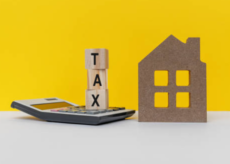Investments for Seniors: High Risk & Returns, Zero Risk & Low Returns
Rising cost of living especially in metro cities along with increasing inflation is making senior citizens or retired person to think about earning money by opting for various types of investments and increasing their bank balance and protect their wealth. Traditional way of earning money through investments made through public provident fund or monthly pension received is not sufficient for living a decent life and manage day to day expenses. Moreover at this age, there is always a risk of medical illnesses which can be taken care of provided health insurance is bought in the early stage of life. If not, then buy a health policy especially made for seniors.
So let’s discuss about the best investment options for senior citizens or retirees. There are two categories of investments viz. high risk high returns and zero risk guaranteed return (i.e. safest). Let’s explore these options in detail:
High Risk, High Return
Mutual Fund: Assuming seniors are looking for returns with short term target to meet their day to day expenses, a very careful approach is required when selecting a fund. Ideally a fund which invests in stocks which has given excellent growth and dividend should be selected. Irrespective of the way you invest in mutual fund, always perform comparison check between different types of funds on your own. Never rely blindly on fund manager. There are funds in the market which have given average return of 18% and have existed for over 20 years. These funds are reliance growth fund, franklin India blue chip fund, HDFC equity and few others.
Indian Equity Market: It is the most seductive investment, a quick money making investment avenue but at the some most risky as it is dependant on various factors which are not in the control of any individual directly. Factors impacting equities are economic condition, weather, international market and many others. However gains from equities have outshined below listed investment options.
Foreign Equity Market: Works on similar concept as Indian equity market but difference is you invest in stocks of companies out of India i.e. foreign countries for e.g. NASDAQ, NYSE, and others. However a strong rupee will only fetch you good return as a weak rupee means lesser returns as exchange rate comes into effect.
Company Fixed Deposits: They are similar to fixed deposits as mentioned below but are risky as the returns depend on the financial health of the company issuing FD. However, if you were to decide on which FD to select, then look for the credit rating assigned such as AAA, AA, C, and others. C rating indicates returns could be riskier and company might default on the returns. Whereas AAA indicates less risky and the company is credit worthy. These ratings are given by CRISIL, FITCH, ICRA, and others. And interest rates offered also varies between 8%-12% per annum.
There are many other high risk high return investment options but above listed have been favorite amongst the investors.
Zero Risk and Guaranteed Returns (Safest):
Senior Citizen Savings Scheme: Specially made for senior citizens, SCSS is for individuals with age 60 years and above with an interest rate of 9.3% per annum. Minimum amount that can be invested is Rs. 1000 and maximum limit is Rs. 15, 00, 000 (15 Lac) and maturity is 5 years. In case of emergency, money can be withdrawn prematurely. If you wish to withdraw money after 1 year then 1.5% of the deposit amount will be deducted whereas if you withdraw after 2 years, 1% of the deposit amount will be deducted. SCSS account can be opened in post office and nationalized banks only. Another benefit of SCSS is, post maturity account can be extended for another 3 years.
Recurring Deposit: For senior people, investing in RD is another safe bet as they get additional benefit in the form of little higher interest 0.25%-0.75% than a normal individual. However this varies from bank to bank. If retired person does not have any regular source of income, then they can make use of their saving and invest a small amount in RD which earns little less than FD and lock-in period ranges from 6 months to 10 years. Also the interest is compounded quarterly. Senior citizens with no regular source of income can opt for RD as they don’t have to pay a big amount in lumpsum and moreover it instills in them a habit to save regularly.
Fixed Deposit: It is similar to recurring deposit with interest compounded annually but offers slightly higher returns compared to RD. This is because in FD you need to invest lump sum amount which earns you interest whereas in case of RD, since the money is deposited every month, interest gets calculated every month on the deposited amount. But again the plus point is that your investments are safe and there is no risk involved. Retired individuals can prefer investing in FD over RD because it gives higher returns. But they are advised to do so when they have sufficient corpus to take care after locking their money.
Post Office Monthly Income Scheme: With a five year lock-in period, this scheme offers 8.4% returns but offers gives assured return. And this is the reason why it is a risk-free investment avenue. Once you open an account, every month interest money is credited into the account which can be withdrawn anytime. However there is a maximum limit which can be invested which is Rs. 4, 50,000 in a year and you can also nominee. So if you have any dependents (wife, husband, children and others), then you can mention their name while opening the account or even after that.
Post retirement, individuals should look for peaceful life and invest money in products which give guaranteed returns. If you are ready to take some risk then plan to divide your portfolio in 75% (zero risk) and 25% in risky options. Avoid the reverse way. In addition, there are many other jobs especially for retired people.



